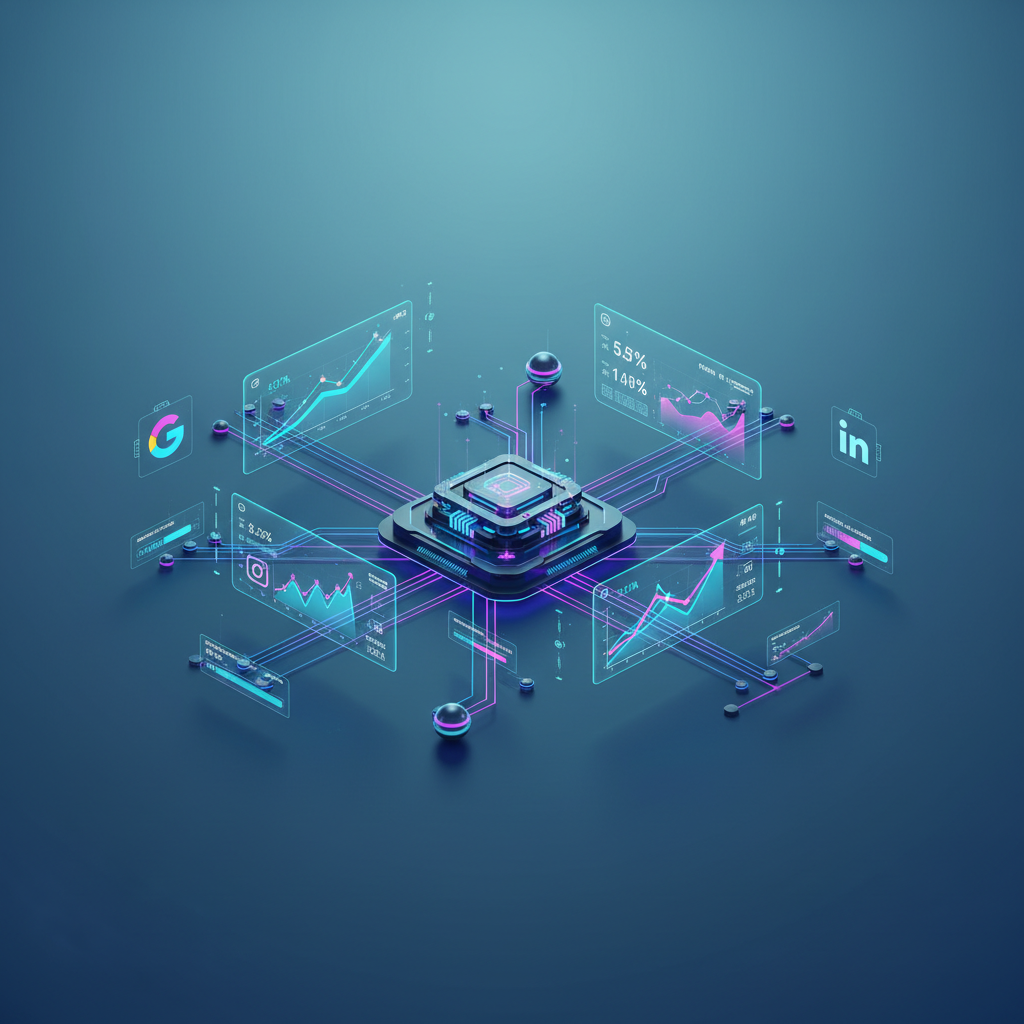
Frameworks, core principles and top case studies for SaaS pricing, learnt and refined over 28+ years of SaaS-monetization experience.
Thank you! Your submission has been received!
Oops! Something went wrong while submitting the form.
Join companies like Zoom, DocuSign, and Twilio using our systematic pricing approach to increase revenue by 12-40% year-over-year.

In today's digital marketing landscape, managing pay-per-click (PPC) campaigns has become increasingly complex. Marketers are juggling multiple platforms, analyzing mountains of data, and making constant adjustments to maximize return on ad spend. Enter agentic AI—a revolutionary approach to PPC management that's changing the game for advertisers.
Agentic AI represents a significant evolution beyond traditional automation tools. Unlike simple rule-based systems, agentic AI platforms operate with a degree of autonomy and intelligence that mirrors human decision-making. These systems can:
As Gartner reports in their 2023 Marketing Technology survey, companies implementing advanced AI for advertising intelligence have seen an average 23% improvement in campaign efficiency metrics.
PPC management has evolved dramatically over the past decade:
Stage 1: Manual Management (Pre-2010)
Stage 2: Rules-Based Automation (2010-2020)
Stage 3: Agentic AI Systems (Current)
Agentic AI systems excel at identifying and reaching your ideal audience. By analyzing vast datasets of user behavior, these systems can predict which users are most likely to convert and adjust bidding strategies accordingly.
According to a 2023 study by the Interactive Advertising Bureau, advertisers using advanced AI targeting saw a 37% increase in conversion rates compared to traditional methods.
One of the most powerful capabilities of advertising intelligence systems is their ability to reallocate budget in real-time based on performance metrics. Rather than waiting for weekly reviews, these AI agents continuously monitor:
"The ability to dynamically shift budgets based on real-time performance has transformed our approach to multi-channel advertising," notes Maria Chen, CMO at SaaS platform provider CloudMatrix. "Our AI system identified opportunities we would have missed with traditional management approaches."
Modern agentic AI doesn't just handle the numbers—it's increasingly capable of analyzing and optimizing creative elements:
Despite the clear advantages, implementing agentic AI for PPC management comes with challenges:
Challenge: Most organizations struggle with siloed data across marketing platforms.
Solution: Begin with a data integration strategy before implementing advanced AI tools. Focus on unifying data from your primary advertising platforms before expanding to secondary sources.
Challenge: Determining the right level of autonomy to grant AI systems.
Solution: Start with a "human in the loop" approach, where AI makes recommendations but humans approve significant changes. Gradually increase autonomy as trust and performance data accumulates.
According to a McKinsey report on AI adoption, companies that take this phased approach to AI implementation are 27% more likely to report successful outcomes.
Health tech company Vitality implemented an agentic AI system for their multi-channel PPC campaigns across Google, Meta, and LinkedIn platforms. The results after 90 days were impressive:
"What surprised us most wasn't just the improvement in standard metrics," explains John Davis, Digital Marketing Director at Vitality. "It was the AI's ability to identify patterns and opportunities across platforms that our team simply couldn't have spotted while managing campaigns manually."
As we look ahead, several trends are emerging in the advertising intelligence space:
Future agentic AI will increasingly optimize across not just multiple campaigns but entire marketing ecosystems, including:
Rather than simply reacting to current data, next-generation systems will:
The management experience itself is evolving toward conversational interfaces where marketers can:
Ready to explore how agentic AI can transform your PPC campaigns? Here's a practical roadmap:
Audit Your Current Process: Identify which aspects of your PPC management are most time-consuming and which would benefit most from intelligence automation.
Start Small: Consider implementing AI in one channel or campaign type first to establish a baseline for comparison.
Prioritize Learning: The most powerful AI systems improve over time—give your solution enough data and feedback to learn your business objectives.
Measure Beyond Standard Metrics: Evaluate not just campaign performance improvements but also team productivity gains and strategic insights generated.
As PPC environments grow more complex and competitive, agentic AI represents not just an efficiency tool but a strategic advantage. Organizations that successfully implement these systems gain not only better campaign performance but also free their marketing teams to focus on strategy rather than execution.
The question isn't whether AI will transform PPC management—it already is. The real question is how quickly your organization will adapt to and benefit from this new paradigm of advertising intelligence.

Join companies like Zoom, DocuSign, and Twilio using our systematic pricing approach to increase revenue by 12-40% year-over-year.